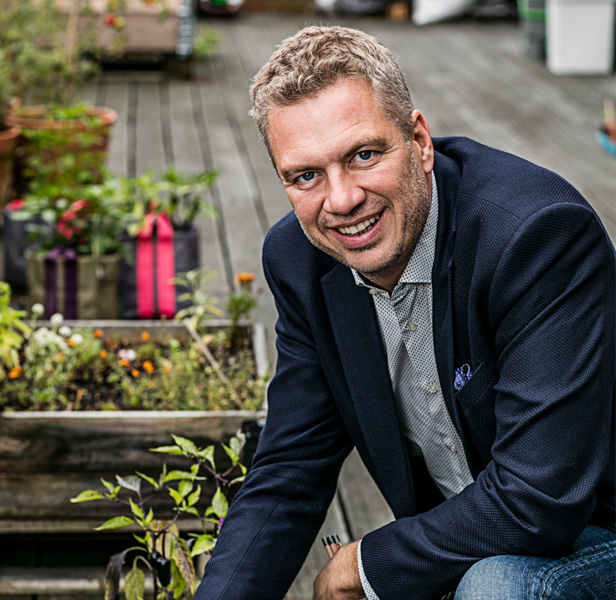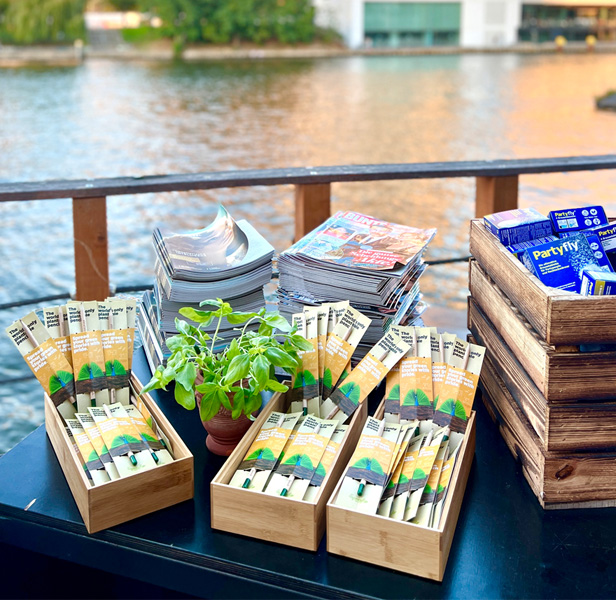Sustainability September 04, 2024
5 Ideas for Creating a More Sustainable Event
Sourcing responsibly produced giveaways is important, but it’s not the only logistical consideration.
When it comes to events, sustainability is becoming the name of the game.

Michael Stausholm is the CEO and founder of B Corp-certified Sprout USA (asi/88893).
Consider the example of last year’s German Acting Prize event in Berlin, a well-thought-out event with consistent consideration of sustainable aspects. The invitations were sent only digitally. Invited guests arrived exclusively by train. Only regional service leaders were involved. There was vegan and vegetarian catering onsite without unnecessary napkins, refreshing towels or disposable tableware. A strict waste separation system was followed, and a sharing shuttle system with electric vehicles was used.
I really liked the “goodie bag station” as an alternative to pre-packed bags, where our Sprout pencils – which can be planted and turned into flower, herb or vegetable plants after use – were also represented. Sophie Mauve, responsible project manager at La Maison Film, told me the station ensured guests could “put together their own personal bag with products relevant to them.”

The German Acting Prize in Berlin set up a “goodie bag station,” which included Sprout’s plantable pencils so guests could pick and choose items that were most relevant to their needs and desires.
As you plan out future events – or help clients organize their own events – consider these tips to increase their sustainability.
1. Take a holistic approach.
Sustainability should be an integral part of the event concept from the start. This not only includes selecting environmentally friendly promotional products to give away but also taking ecological and social aspects into account when choosing the location, catering and means of transport. Reducing single-use plastic, promoting regional products and incorporating renewable energy should always be part of event management.
2. Focus on saving resources.
A sustainable event requires event management that conserves resources. Digital communication and documentation reduce paper consumption. Recycling stations and reusable materials also help to conserve. This applies not only to the event days themselves but also to planning and organization.
3. Raise awareness among participants.
An event should always serve as a platform to raise participants’ awareness of sustainability. This can be achieved by integrating informative elements, workshops, or lectures and creates awareness of sustainable action and, in the best case, encourages guests to make sustainable decisions outside of the event.
4. Cooperate with sustainable partners.
Collaboration is best done with sustainable partners who share a common vision. From the selection of service providers to cooperation with sponsors – the choice should fall on companies that are actively committed to environmental protection and social responsibility. Together, a greater positive impact is achieved.
5. Strive for measurable success and continuous improvement.
Clear criteria for measuring an event’s ecological and social footprint should be defined in advance. Data on energy consumption, waste generation and CO2 emissions should be collected. The findings help to continuously improve event management. Transparency and openness toward participants not only strengthen trust but also motivate active participation in sustainable events.
Michael Stausholm is the CEO and founder of Sprout USA (asi/88893), a B Corp-certified company founded in 2013. He and his team have sold more than 80 million plantable pencils in over 80 countries.

Promo for the Planet is your destination for the latest news, biggest trends and best ideas to help build a more sustainable and socially-responsible industry.
